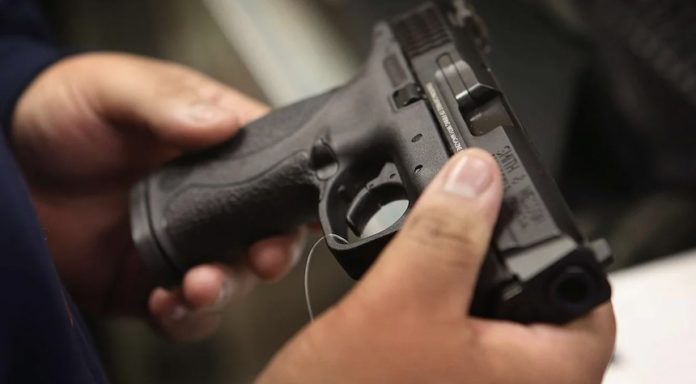A federal judge in West Virginia ruled that a federal law prohibiting the possession of guns with their serial numbers removed was unconstitutional. He relied on the landmark Second Amendment ruling by the U.S. Supreme Court in June.
18 U.S.C. SS 922(k) prohibits anyone from knowingly transporting in interstate or international commerce any firearm that has had its serial number removed, obliterated, or altered by an importer or manufacturer.
U.S. v. Price, U.S. district judge Joseph Goodwin found that the federal law was inconsistent with the United States “historical traditions of firearm regulation,” which was the standard set by the Supreme Court in the 6-3 New York State Rifle & Pistol Association, Inc. v. Bruen decision.
Randy Price was arrested for illegally possessing a firearm with the serial number removed. During a Charleston traffic stop, the weapon was discovered in Price’s vehicle. Although Price was convicted of other felonies, the judge dismissed this charge and added another charge of Price illegally possessing his gun.
Goodwin stated that the law makes it illegal to possess a firearm if a serial number has been removed, obliterated, or altered. This applies regardless of whether the firearm is placed in commerce. He argued that this is contrary to the Second Amendment’s plain text.
“Section 922(k), which implicates conduct that is protected under the Second Amendment, is presumptively invalid unless the Government can prove that it is compatible with the Nation’s historic tradition of firearm regulation.” Goodwin explained that this analysis is limited by the Supreme Court’s definition of ‘historical tradition” as the time at which the Second Amendment was ratified and founded in 1791.
He explained that any modern regulation that is not consistent with the historical understanding of the rights should be deemed unconstitutional.
Lex Coleman, a defense lawyer, stated that Goodwin’s decision was “thoughtful and measured” in a statement to Reuters. The U.S. Attorney’s Office in Charge of Prosecution said that it was reviewing the ruling and assessing the options.
To prevent illegal gun sales and track firearms used in criminal acts, the Gun Control Act of 1968 mandates that firearms be assigned serial numbers.
Price argued that the law was unconstitutional according to the historical standard test set in Bruen. The Second Amendment did not require serial numbers at the time it was adopted in 1791. They were not used widely until 1968.


